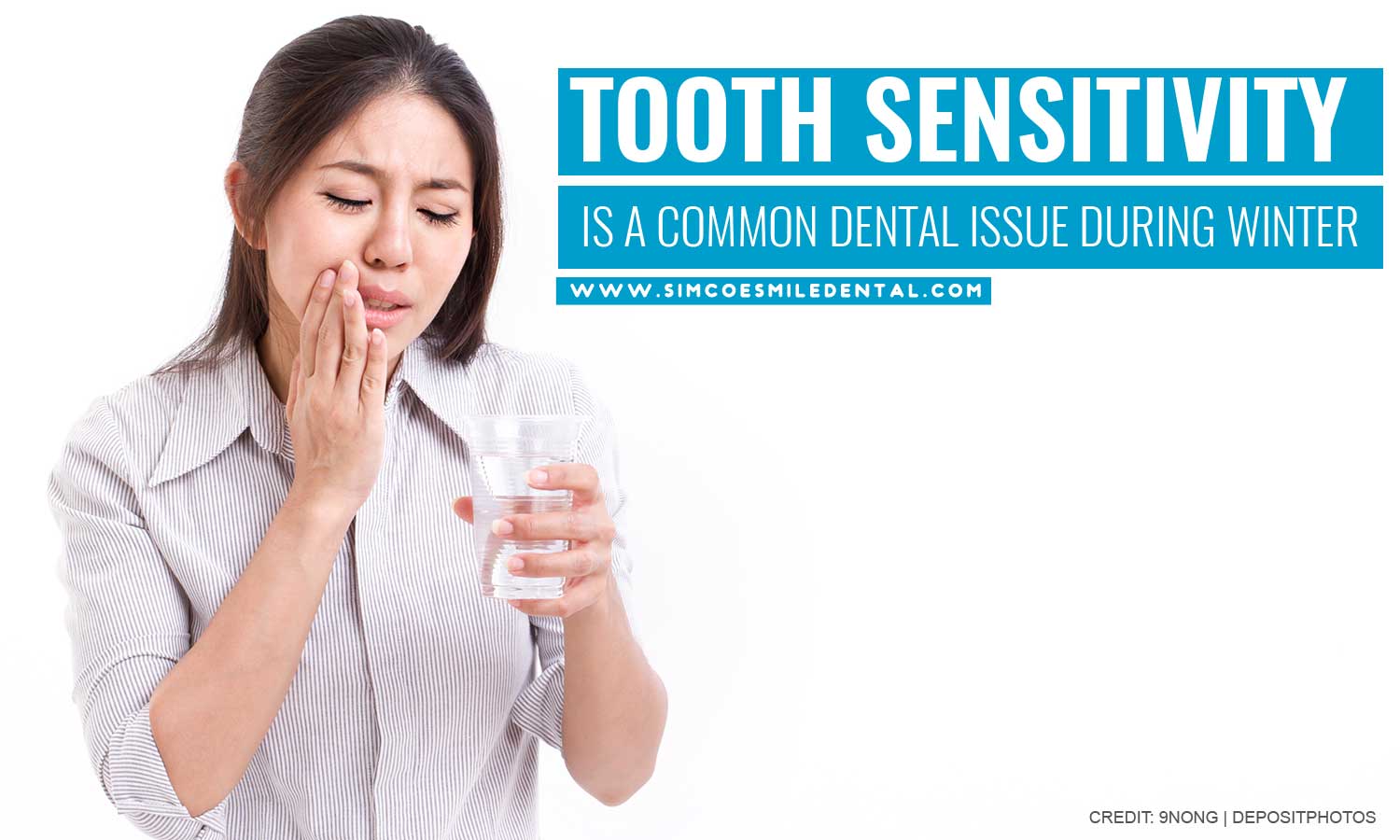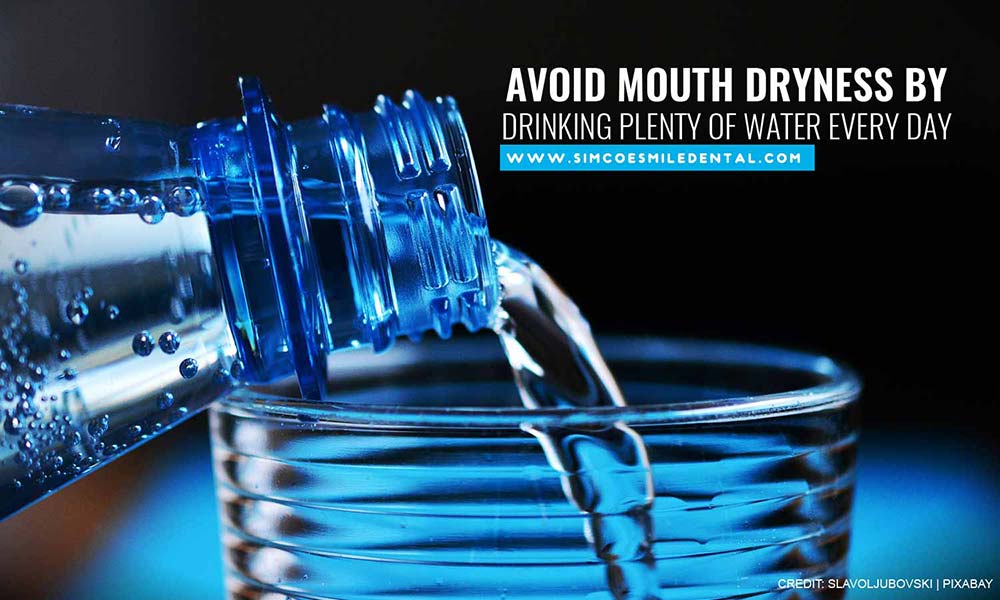While the winter brings a season of celebration, there are also several downsides that come with the colder months. Exposure to freezing temperature can affect the health of your skin and muscles— did you know that it can contribute to poor dental health?
Exposure to extremely low temperatures can cause the tooth enamel to contract. The dry air can also dehydrate our mouth, causing a serious impact on you and your family’s dental health.
Here are the most common dental problems during winter:
- Tooth Sensitivity
The change in weather (from warm to colder temperature) can increase the pressure on the nerves beneath the surface of the tooth and cause the gums to recede. This often results in tooth sensitivity. People with sensitive teeth experience sharp pain when they eat or drink anything hot or cold. In most cases, tooth sensitivity results in pain and discomfort; but in extreme cases, this simple dental issue can result in fractured or lost teeth.To protect your teeth and gums from the freezing temperature, keep your mouth closed and breathe through the nose. Wearing a mask or scarf can act as a barrier and help warm the air entering your mouth or nose. Using toothpaste formulated for sensitive teeth also helps reduce or prevent sensitivity. - Mouth Sores
Cold sores and canker sores are among the most common dental woes in winter. It is caused and aggravated by dehydration and exposure to harmful bacteria. Unlike canker sores, cold sores are contagious and can be triggered by a weakened immune system. While these are not serious, both issues can further impact your immunity. - Dry Mouth
The inability of the salivary glands to produce saliva causes the mouth to become dry. Breathing in cool, dry air through your mouth can speed up the dehydration process, reducing the ability of your mouth to fight plaque-causing bacteria. Saliva moistens the mouth, lubricates oral functions, and neutralizes harmful bacteria. Untreated dry mouth can result in unpleasant breath problems.
- Jaw Pain
Temporomandibular joint disorder (TMD) is common during the winter, but it is not directly caused by the cold temperature. The chilly air, accompanied by the drop in barometric pressure can aggravate arthritis and other joint disorders, causing TMD symptoms to be more pronounced.Sometimes, the cold weather can trigger discomfort in the surrounding area of the jaw, which causes headaches, neck pain, and toothaches. In extreme cases, chronic TMD can restrict jaw movement, which affects your ability to chew, talk, and breathe normally to some extent. - Cavities
The abundance of sweet holiday treats during the winter season can increase the risk of tooth cavities. Bacteria produce acid after feeding on the sugar in your mouth. The acid will eat away the tooth enamel and the deeper layers of the teeth, causing a hole or cavity. That is why brushing and flossing during this time of the year are extremely crucial, as they help get rid of excess sugars and kill harmful bacteria that cause plaque and cavities.
Quick Winter Public Dental Health Tips
With the arrival of the winter season, you should not only focus on preparing your home, car, and winter clothing. Maintaining good oral hygiene should also be on your list of priorities. Just like your skin and hair, your mouth, teeth, and gums also require special care and attention.
Here are several good dental health tips for the winter months to keep your smile in top condition:
- Brush Your Teeth with Care
People who are susceptible to sensitive teeth (especially in the winter) must adopt a new style of brushing. Make sure to use a soft-bristled toothbrush and brush your teeth and around the gums as gently as possible with a toothpaste formulated to reduce teeth sensitivity. - Limit Hot Chocolate
Cozying in front of the fireplace and sipping on a hot cup of hot chocolate may sound appealing, but dental professionals recommend limiting your hot cocoa consumption. As indulging as it sounds, hot choco can be damaging to your teeth as it is high in sugar.If you are craving hot cocoa on a cold day, choose a sugar-free version. This gives your teeth a break from all the sweet treats from Thanksgiving, Halloween, and Christmas. Instead of hot cocoa, why not switch to tea (but leave out the sugar)? It does not only warm your body but also soothes your throat.
- Stay Hydrated
Many people think that summer is the most crucial time of the year to load up on liquid—so is in the winter season. In addition to the dry air outside, running the heat in your home can cause the air to become drier. This causes your mouth to lose more moisture and dry out overnight.Drinking enough water helps maintain your mouth’s moisture and reduce the population of bad oral bacteria. Fluoride found in tap water helps protect the teeth from cavities and decay.
- Wash Hand Frequently
The freezing temperature can trigger painful cold sores around the mouth. In addition to good dental health activities, make sure to wash your hands more often and avoid touching them with your hands to keep germ at bay. Frequent hand washing does not only get rid of harmful bacteria and viruses, but it also helps reduce your risk of winter flu and avoid transmission among your friends and family.
Do not let dental problems spoil the holiday season this winter. If you think you are at risk of any of these dental problems during the season or if the cold weather aggravates an existing oral problem, do not hesitate to get in touch with the nearest dentist in Oshawa and book a dental checkup appointment. The sooner you get a dental checkup, the sooner you will feel better and enjoy the holidays.
Simcoe Smile Dental is a trusted dental clinic in Oshawa. We take pride in providing comprehensive dental services to ensure optimal Oshawa community dental health. Call Simcoe Smile Dental today at (289) 312-1482 to schedule an appointment at our dental health centre.





